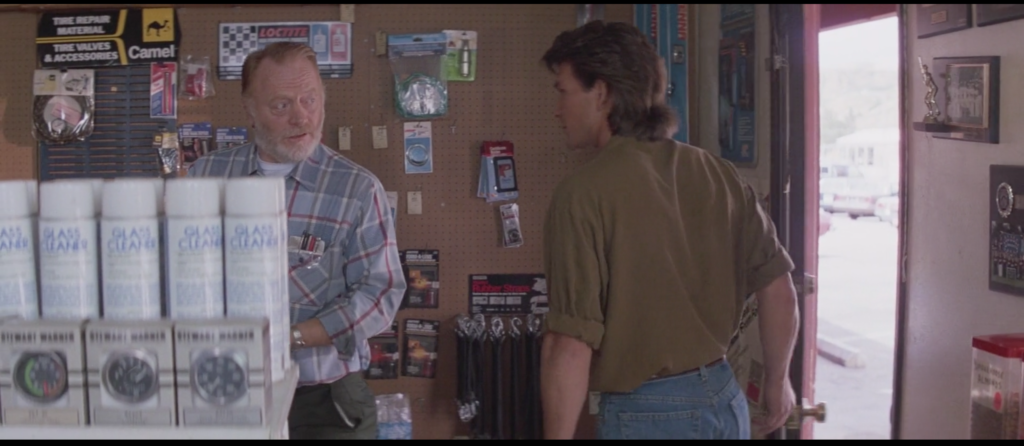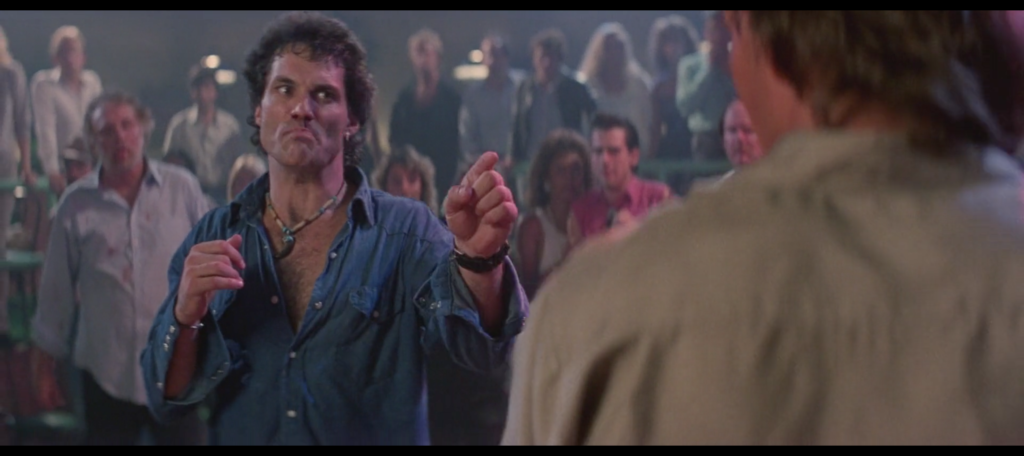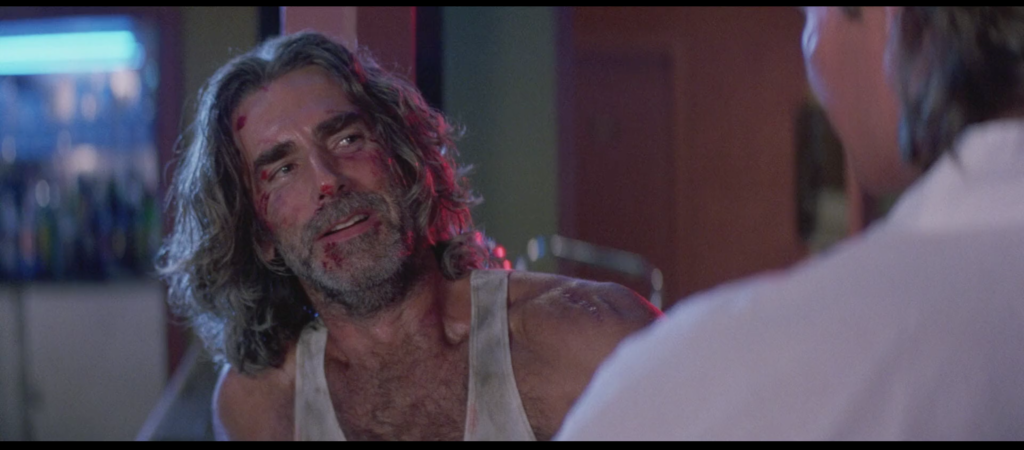Brad Wesley is not the only character in Road House in whose eyes Dalton is but a boy. Three others label him as such, and they could not be more different in tone and intent.
First up is Red Webster, one of the Four Car Salesmen of Jasper, Missouri. An avuncular presence in the film—literally: He is Dr. Elizabeth Clay’s uncle—he asks if Dalton is “the boy from the Double Deuce” when our hero shows up at his store before it opens to have various parts of his car replaced. Just a friendly, getting-to-know-you inquiry, from a guy calling another guy “boy” because he’s younger and he’s just arrived in town. Here, “boy” connotes “newcomer,” someone who is experiencing the world around him with fresh eyes, and who finds himself welcomed by those around him. Excepting the clientele of the Double Deuce as currently constituted, of course.
Next is Jimmy, Brad Wesely’s right hand and bastard son [source for this claim?]. “Your ass is mine, boy,” he growls, gesticulating for emphasis in case the owner of the ass of which he is claiming emphasis was unclear. Wesley has just stopped Jimmy from taking on a roughed-up Wade Garrett and a fresh-to-the-fight Dalton 2-to-1 in the Double Deuce, the night Wesley’s men blow up Red Webster’s store and Denise does an aggressive striptease to further assert Wesley’s dominance or something. Here, “boy” means a man less experienced, less tough, less dangerous, less of a man; Jimmy will use the term again when he sneers at Dalton’s fighting prowess during their eventual mano a mano showdown. (His father, spiritually anyway if not biologically, Brad Wesley will pick up the ass-owning baton and run with it, by the way, but not before Jimmy returns to that well implicitly when describing what he used to do to guys like Dalton in prison.)
The third and final boy-sayer is Wade Garrett. Staggering into the Double Deuce the night after Dalton kills Jimmy, Wade has been badly wounded in a fight with three unspecified Wesleyan goons. Dalton realizes that if Wade is still alive, it could be that the hammer is slated to fall on Elizabeth. He rushes out to find her, but not before assuring Wade that he will grant his mentor’s wish at last: They will leave this town and never look back, allowing Wesley to win rather than keep up a fight that by rights isn’t theirs. Wade looks up at the younger man and smiles. “Attaboy, mijo,” he says. Mijo, of course, means “son”; this is the “boy” of approval, of pride, of love. This is the “boy” of a dying parent’s love for his only child.
Tags: brad wesley, dalton, goons, jimmy, red webster, road house, the double deuce, wade garrett



